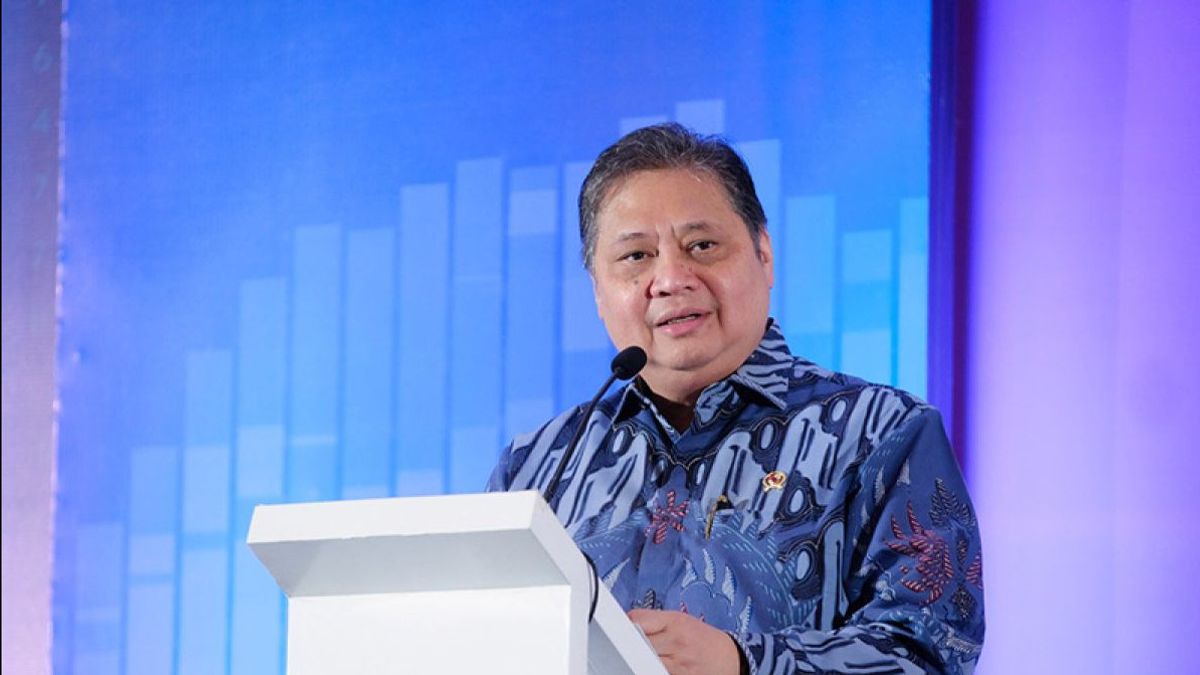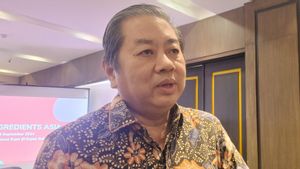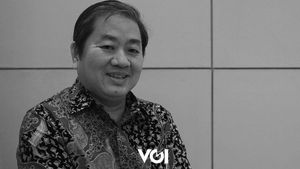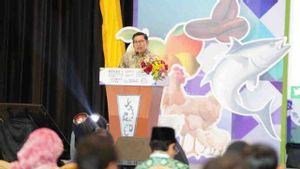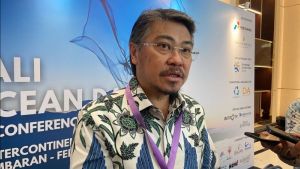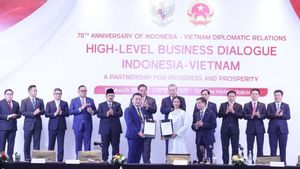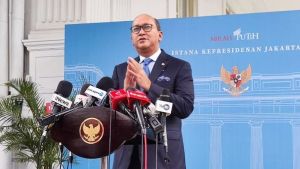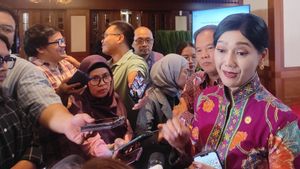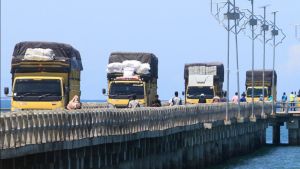JAKARTA - The government has revealed that the availability of domestic milk supplies currently comes from imports from New Zealand to meet the needs of the country.
Coordinating Minister for Economic Affairs Airlangga Hartarto said that domestic milk supplies have not been able to meet their needs. Therefore, the government imports milk from New Zealand to meet the needs of milk in the country.
"We also import the milk industry from New Zealand right now," he told the media crew in Jakarta, Wednesday, July 24.
Airlangga said that he had not yet discussed in more detail regarding the availability of the milk needs needed in the free nutritious food program.
"Yes, we have not discussed the (eating) nutritious (free) program, we have not discussed the details regarding milk," he explained.
In addition, some time ago, Airlangga had a meeting with British Trade Minister The Rt. Hon. Greg Hands MP at the Office of the Department of Business and Trade.
Airlangga said at the meeting Minister Greg expected the trading of dairy products and their derivatives within the framework of JETCO which was still felt by problems in registration because it took a long time, apart from the implementation of Sanitary and Phytosanitary (SPS).
He emphasized that Indonesia is in the middle of a deregulation that emphasizes an easier mechanism for registration of dairy products and their derivatives.
"This effort is to support the increase in demand for dairy products and their derivatives with the new government program, namely free milk for students," said Airlangga in his official statement.
Previously, the General Chairperson of the Association of Indonesian Food and Beverage Producers (Gapmmi) Adhi S. Lukman revealed that the domestic milk supply had not been able to meet the needs of the program.
"Meanwhile, in my opinion, like it or not (must be imported), while fixing it upstream," Adhi told reporters, quoted on Tuesday, July 23.
Adhi said that currently domestic milk production has been fully absorbed for national consumption needs. In fact, he noted that it was still lacking because around 80 percent of the needs were still supplied from imports.
According to him, the plan to import dairy cows to Indonesia is a difficult step. Because, there are only a few areas in Indonesia that are suitable as centers for milk production.
"Now local production has been absorbed 100 percent, but it is still lacking. That's why there is a program, he said he wants to add more cows. But, right, it's not easy. Because Indonesia is a tropical country that doesn't have a wide field," he said.
With these obstacles, Adhi assessed, milk production in Indonesia is far behind other countries. For example, there are Australia and Europe where each dairy farm is able to produce up to 50 liters of milk per day.
SEE ALSO:
"In Australia or Europe, the productivity per day can be 40-50 liters. Here the average farmer is around 12-15 liters, companies that are already quite large like Greenfields and so on can be around 20-25 liters. Nothing is 30 liters, it's still better," said Adhi.
"But, most of our breeders are people's breeders whose productivity is low because the weather is not suitable and so on," he added.
Meanwhile, Adhi admitted that several Gapmmi member companies were invited to import dairy cows. However, he assessed that there are still many aspects that are considered to be realized.
"Yes, several Gapmmi member manufacturers were asked to support the cattle procurement program. However, there are indeed many things that must be prepared, it cannot be immediately like that," he concluded.
The English, Chinese, Japanese, Arabic, and French versions are automatically generated by the AI. So there may still be inaccuracies in translating, please always see Indonesian as our main language. (system supported by DigitalSiber.id)
